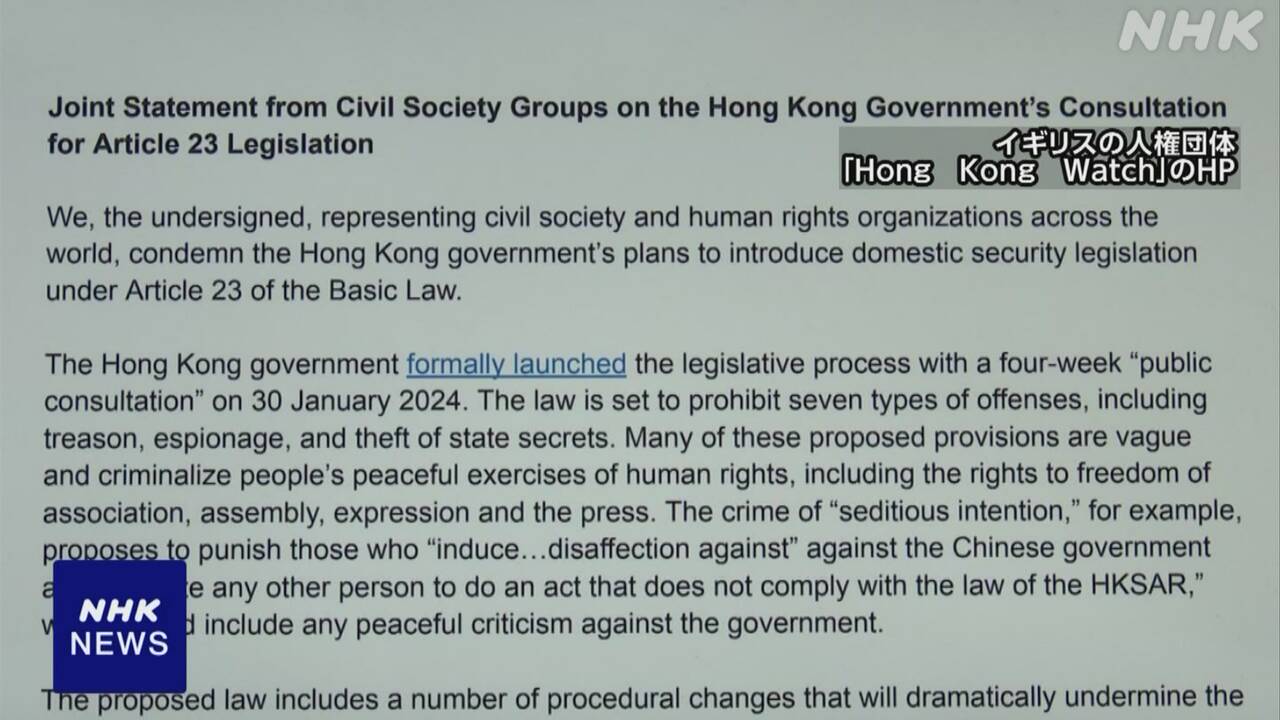More than 80 human rights organizations around the world have issued a statement condemning the National Security Ordinance that the Hong Kong government is aiming to enact, saying it will have "catastrophic consequences for the human rights situation," and the Hong Kong government has strongly opposed it. Masu.
The Hong Kong government has announced that it will enact its own National Security Ordinance in 2024 to crack down on acts that threaten national security.
A summary released in January states that the crackdown will include stealing state secrets, espionage, and inciting rebellion.
Regarding this, 86 human rights organizations active around the world, including the United States and the United Kingdom, issued a joint statement on February 19, stating that the provisions of the ordinance are ambiguous and that criticizing the government may be subject to criminal charges. I blamed it.
He then argued that the authorities involved in enacting the ordinance should be sanctioned, stating that the ordinance would have devastating consequences for the human rights situation.
In response, a senior Hong Kong government official responded on the 20th, saying, ``The joint statement is defamatory and a fabrication,'' and added, ``They say criticizing the government is a crime, but that doesn't happen.'' Did.
Furthermore, the Hong Kong government strongly objected to sanctions against officials, saying, ``Using such threats to interfere in China's internal affairs may be a crime under the Hong Kong National Security Law.''
When the government aimed to enact this ordinance 21 years ago (2003), it was forced to withdraw the ordinance due to strong public opposition, but the Hong Kong National Security Law, which cracks down on anti-government movements, came into effect. Nowadays, protests like those in the past have been strictly suppressed.

